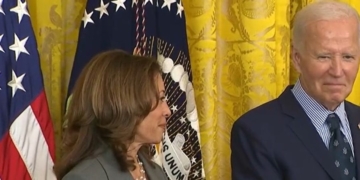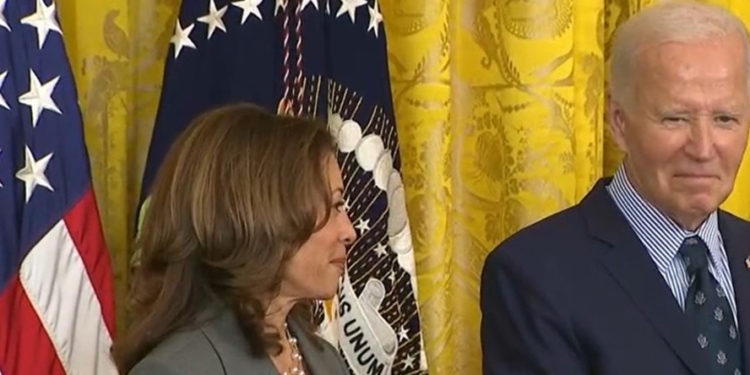President Joe Biden’s 2021 Bipartisan Infrastructure Law (BIL) earmarked tens of billions of taxpayer dollars for expanding broadband internet, yet, more than three years later, not a single project is underway.
The $1.2 trillion law earmarked over $42 billion to provide internet access in unserved, mostly rural areas, with Biden once describing the initiative as “not unlike what Roosevelt did with electricity.” However, not a single project funded by the initiative has broken ground, with federal subsidies not expected to reach projects until 2025, largely due to a slew of regulatory hurdles, such as requirements for internet providers to participate in green initiatives and employ unionized workforces.
“In 2021, Kamala Harris became the ‘Broadband Czar’,” Republican South Dakota Sen. John Thune wrote in a post on X on Sep. 24. “Three years and $42 billion later, not one person has been connected to the internet under the BEAD [Broadband Equity, Access and Deployment] program.”
It’s been nearly three years since the BEAD program was established – and in all of that time the program has not connected a single household to the internet. “Broadband Czar” Harris’s tenure has been nothing short of a disaster. pic.twitter.com/3qmehkvIM5
— Senator John Thune (@SenJohnThune) September 24, 2024
Another challenge comes from applicants having to demonstrate how the internet plans they provide using the federally subsidized infrastructure will be affordable for Americans with household incomes at or below 200% of the poverty line. Virginia’s application process, for example, took more than 10 months due to a dispute between the state and federal government over a price cap for low-cost plans.
The White House’s pace of implementation has drawn scrutiny from Republican lawmakers, with the House Energy and Commerce Committee launching an investigation into the National Telecommunications and Information Administration’s handling of the initiative. The broadband expansion program has also drawn comparisons to the Biden-Harris administration’s electric vehicle (EV) charger expansion initiative, that, as of April 2024, had built just seven stations despite the $7.5 billion the November 2021 Bipartisan Infrastructure Law allocated it.
The EV charger expansion program was delayed in part due to diversity, equity and inclusion (DEI) requirements, with the Department of Transportation saying applicants should promise to engage in “intentional outreach to underserved communities” by hosting “neighborhood block parties.”
“The Biden Admin has been layering a partisan political agenda on top of this $42.45B program — a liberal wish list that has nothing to do with connecting Americans,” Brendan Carr, the former head of the Federal Communications Commission wrote in a June X post. “Climate change mandates, tech biases, DEI requirements, favoring government-run networks + more.”
The U.S. Department of Commerce did not immediately respond to a request for comment.
Featured Image: Screen Capture/CSPAN
All content created by the Daily Caller News Foundation, an independent and nonpartisan newswire service, is available without charge to any legitimate news publisher that can provide a large audience. All republished articles must include our logo, our reporter’s byline and their DCNF affiliation. For any questions about our guidelines or partnering with us, please contact [email protected].



























 Continue with Google
Continue with Google